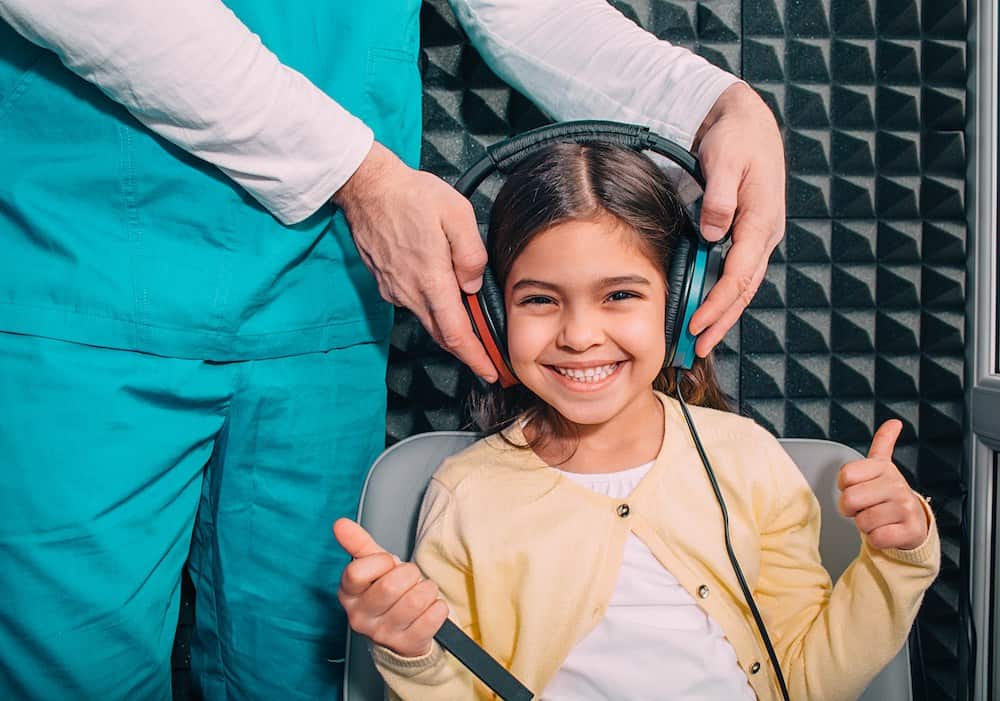How to Adjust Hearing Aids for Seasonal Allergies
Allergy season brings familiar symptoms like sneezing, watery eyes and

Hearing aids enhance the lives of individuals with auditory loss. However, proper hygiene and care are crucial for optimal performance and longevity while extending your device’s lifespan. It’s worth noting that this requires some simple yet effective steps. Moreover, it’s always best to consult an audiologist with concerns or questions. Below is a step-by-step guide on cleaning and storing your hearing aids effectively.
Regular cleaning is vital for maintaining your hearing aids’ performance and longevity. Inspect your hearing devices for any visible debris, such as earwax, dust or moisture, for an effective cleaning routine. After the inspection, use a soft, dry cloth or a specialized hearing aid brush to gently remove the accumulated dirt. The next part to concentrate on is the microphone, which requires a lot of care to keep it dirt-free. Clean the microphone ports using a small brush or any other tool provided by your audiologist. Be careful not to insert the brush too deeply, as it may damage the delicate components.
Subsequently, wipe the exterior of the hearing aids with a slightly damp cloth, ensuring you avoid getting moisture into the device itself. For in-the-ear (ITE) hearing aids, it is crucial to remove the earmold or dome and clean it separately. Use mild soap and warm water, then rinse thoroughly and dry before reattaching it to the hearing aid. This way, you prevent water drops from seeping into delicate internal parts.
When handling your hearing aids, it’s essential to be gentle and cautious to avoid accidental damage. Wash your hands thoroughly before touching your hearing devices helps prevent transferring dirt, oils or other contaminants. Moreover, because your hearing aids are delicate, avoid exposing them to direct sunlight, as extreme conditions can damage the delicate electronic components. When not in use, store your hearing aids in a protective case provided by your audiologist. The case should be clean, dry and properly ventilated.
Plastic cases can generate heat and could damage your hearing aids. Therefore, a case like that should have an aerated design through tiny holes that keep the device well-ventilated. Additionally, avoid storing them in areas prone to excessive moisture, such as bathrooms or kitchens. If your hearing aids are rechargeable, follow the manufacturer’s instructions for storing and charging them properly.
Water can severely damage your hearing aids, so keeping them dry is essential. Certain activities bring you into direct contact with water, where you must exercise caution. For example, remember to remove your hearing aids before showering, swimming or participating in water-related activities. If you live in a humid environment, consider using a dehumidifier or a drying kit recommended by your audiologist.
These devices help remove excess moisture and prolong the life of your hearing aids. However, if your hearing aids get wet, gently dry them with a soft cloth and leave them to air dry for several hours. Never use a hairdryer, microwave or direct heat source to speed up drying, as it can cause irreversible damage.
To ensure your hearing aids perform optimally, regular maintenance and professional check-ups are essential. Schedule regular appointments with your audiologist for professional cleaning, adjustment and inspection of your hearing aids, as they have the expertise and specialized tools to perform thorough maintenance. It is also advisable to follow the manufacturer’s guidelines for battery replacement and avoid leaving old batteries inside your hearing aids for an extended period.
When you notice any changes in sound quality, fit or comfort, contact your audiologist promptly, as that will ensure that you always have the best hearing experience. The goal is for the audiologist to address any issues before they worsen.
Hearing aids constantly evolve with new technologies and advancements being introduced regularly. By staying educated and updated, you can make informed decisions and take better care of your hearing aids. You can follow trusted online sources, such as reputable audiology websites and blogs, for reliable information and tips on hearing aid care. Engage in conversations and forums with hearing aid users to share experiences and learn from one another.
This step can provide valuable insights into common issues, troubleshooting techniques and maintenance strategies. However, this does not mean you should take on any hearing device repair as a DIY project, as it’s always advisable to seek professional assistance.
For more information on your hearing and devices, call the Hear Here Audiology team at 727-289-1212.

Allergy season brings familiar symptoms like sneezing, watery eyes and

Cold and flu season brings extra challenges when you wear hearing aids.

Imagine you’re living in a rural area, miles from the nearest